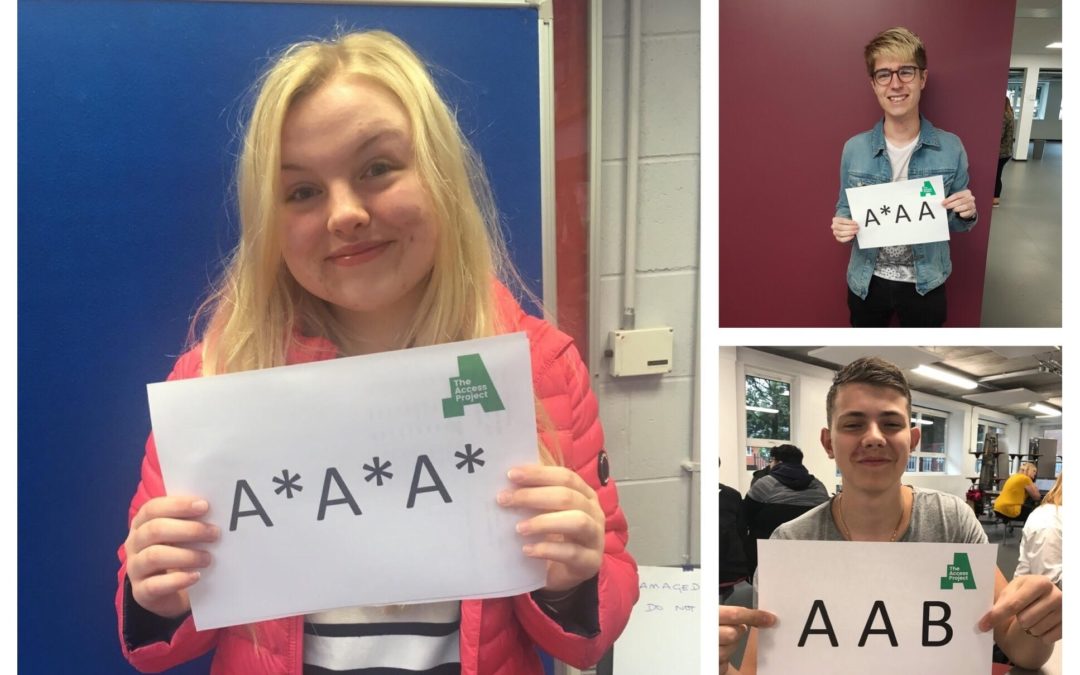Last Thursday’s A Level results day saw some incredible successes for our students – their years of hard work rewarded by a flurry of excellent results and places on fantastic courses at top-third universities.
But we also know that some of our students, along with many others up and down the country, will not have achieved the grades for their first choice offer – and what happens next can sometimes throw up extra obstacles for the students from disadvantaged backgrounds who we work with here at The Access Project.
Back in January, one anonymous academic working in admissions revealed that in their university, decision makers favour students who have additional qualifications that are not typically offered by schools, and yet carry UCAS tariff points, and which are also often out of reach for many of our students.
To illustrate the point: which of the following students could receive extra admissions points for activities beyond their core academic studies?
- A young carer who looks after both his mother who suffers from severe epilepsy and his young sister who has Down’s Syndrome, and who also helps support his family with a part-time job.
- A refugee from war-torn Sierra Leone, who was brought up by a single mother after he arrived in the UK following the death of his father.
- A student whose mother is a doctor and father is a lawyer, with a Grade 8 exam in piano and a Grade 6 in ballet.
The answer is 3: under the tariff points system, students are awarded extra UCAS points for accredited qualifications beyond A Levels, BTEC or IB – including music and ballet exams. And whilst this may not be taken into account when offers are first made, the evidence from the Guardian in January suggests that these extra points sometimes make the difference when university admissions officers are deciding between two students with the same A-Level grades during clearing.
Systematic disadvantage
I believe we should recognise young people’s perseverance and skills development outside the core curriculum: this is useful contextual data and certainly tells admissions officers something about that young person. However, at the moment we have a system that records this kind of contextual data for some students, whilst those who do not have the free time and disposable income to access these qualifications are left at a systematic disadvantage – there is no equivalent contextual data system to recognise the challenges they face.
And let’s be clear: students who are young carers and refugees are not hypothetical examples — at The Access Project we work with students who come from precisely these backgrounds. Despite significant challenges these young people are assiduous attenders at school, completing coursework and homework and getting top grades. Every day they demonstrate skills that would help them flourish at university: resilience, and a highly developed ability to prioritise and plan.
When admissions officers hear these stories they too are impressed, but so often their stories go untold. One way to increase awareness of these stories is for all universities to state clearly and prominently on their admissions pages that they recognise the value of a far wider range of extra-curricular activities than those listed in the drop-down menus of the UCAS website. This would be a clear signal to potential applicants as to the kinds of things they should highlight in personal statements.
And in time, we’d love the sector more broadly to acknowledge that there is equal validity in reviewing contextual data for less affluent students as there is for reviewing a young person’s progress on their piano exams. In a recent report we joined other members of the Fair Education Alliance in arguing for greater support for universities to access this individual-level contextual data, and also for far greater transparency around what universities are doing with this data. Our aim is that all students, regardless of background, should know what information about them is important to universities, and how it is used in the admissions process.
By Andrew Berwick, CEO, The Access Project
To find out more about The Access Project and to get involved, click here:

